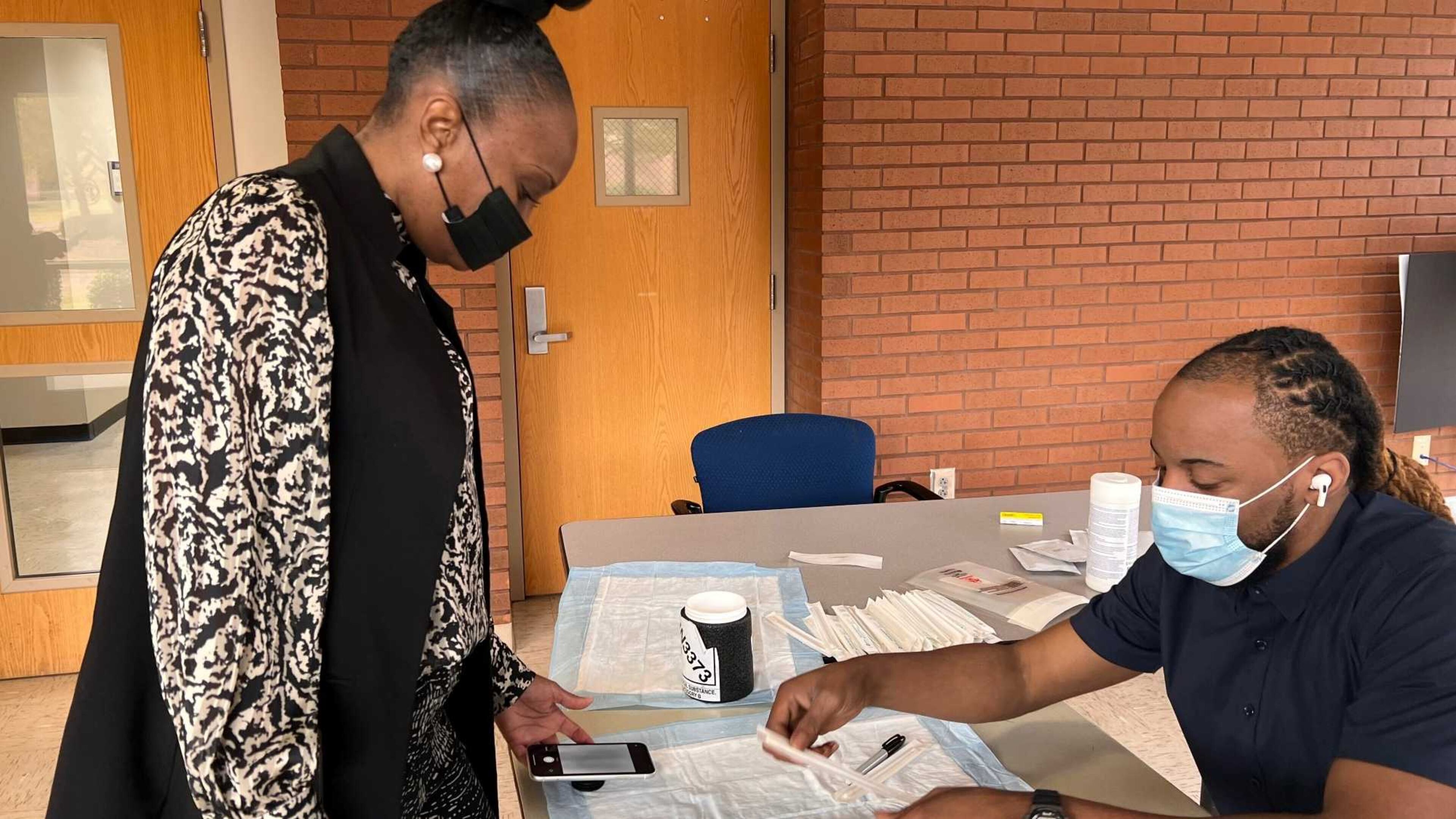COVID rules at Atlanta’s historically Black colleges tougher than most

Atlanta’s historically Black colleges and universities took a stricter approach than most schools in Georgia and nationwide to prevent the spread of COVID-19 on their campuses this past semester.
All students, faculty and staff had to be vaccinated, unless they received an exemption. They had to wear masks at most indoor and outdoor locations. A few weeks after the semester began, the schools conducted weekly COVID-19 testing.
Some called it “overkill,” Dr. Valerie Montgomery Rice, Morehouse School of Medicine president, said during a September town hall meeting. She called it necessary to prevent an outbreak and to show how such measures could work in Black communities, which have had disproportionately high positivity rates.

“If we can mask, if we can do appropriate distancing, if we can become vaccinated, then we can create a safe environment for learning and working and contributing to the science,” she said.
Administrators believe the measures worked. They’ll likely continue most of them, particularly with ongoing concerns about the omicron variant, officials said. Students, staff and faculty will likely be tested before returning to campus for the spring semester. Large indoor events, such as basketball games, may require a test beforehand.
The four private schools — Clark Atlanta University, Morehouse College, Morehouse School of Medicine and Spelman College — conducted more than 64,000 tests this semester, with 270 positive results, a rate of about 0.4%, according to the consortium’s COVID-19 online dashboard. The rate was lower than some of Georgia’s largest public universities.
Georgia’s COVID-19 positive test rate in mid-December was about 5%, but has since increased to a rolling average of 23%, as of Monday.

As of mid-December, about 94% of students had received at least one vaccine dose and more than 87% are fully vaccinated, the dashboard shows. The four schools have about 9,000 students. The vaccination rate for Black Americans is about 50% nationally and 47% in Georgia, according to Kaiser Family Foundation research.
“We did extremely well,” said Michael Hodge, executive director of the Atlanta University Center Consortium, an association of the four schools.
A recent outbreak at an Ivy League school showed the difficulty colleges have at keeping the virus at bay. Cornell University officials moved final exams online and closed the campus after nearly 1,000 students tested positive during four days in mid-December. The University System of Georgia, meanwhile, faced criticism from many professors for not requiring people to get vaccinated or wear masks in most spaces.
The measures by Atlanta’s HBCUs required adjustments. Many homecoming festivities were canceled or limited to students in October. The popular annual Morehouse-Spelman Christmas Carol Concert was held in early December without an audience.

The schools used third-party vendors to assist with testing. Hodge said a major factor that helped prevent potential outbreaks involved limiting the number of students from other local universities on campus for parties and other events.
“That really kept the spread down,” Hodge said.
Convincing some students to get vaccinated wasn’t easy. Student reaction was mixed when the vaccine mandate was announced in April. Many Blacks have been reluctant to get vaccinated, invoking the government-backed Tuskegee study, in which scientists withheld treatment for decades from Black men who didn’t know they had syphilis in order to see how the disease would progress.
Second-year Morehouse School of Medicine student Chidi Ojukwu, 24, heard the concerns. Ojukwu helped lead a team of students who recruited classmates to participate in a nationwide vaccine trial study. Morehouse School of Medicine enrolled 36 participants. Students wanted to know, for example, is the virus in the vaccine? No.
Ojukwu, who grew up in Cherokee County, initially had many of the same questions.
“I had to ask a lot of questions. I wasn’t just asking for me, but I was asking for my own family members because I was a trusted family member (because she’s a medical school student),” she said.
Staff writer Scott Trubey contributed to this report.
Mandatory measures
These were some of the requirements by Atlanta’s historically Black colleges and universities for students, staff and faculty for the fall semester. Most will continue for the spring semester.
- Vaccinations are required to attend classes or to work on campus, unless an exemption is approved.
- Weekly rapid testing. (Athletes may have to follow NCAA testing regulations.)
- Random PCR testing.
- Wearing masks in indoor facilities.



